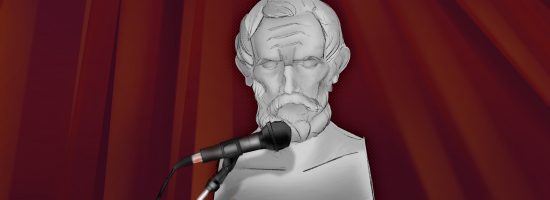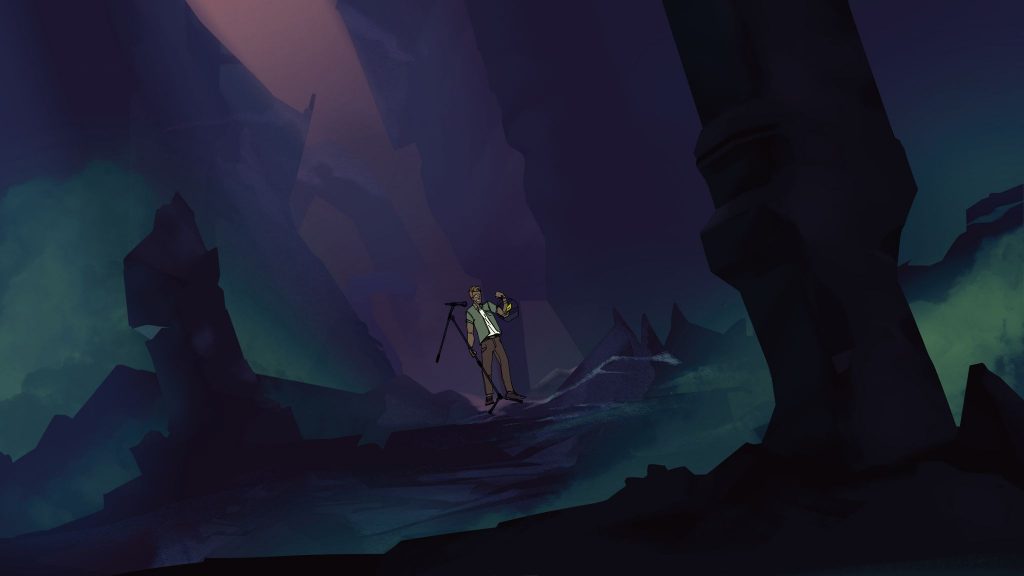search the site
Laughing is a Deadly Matter: The Double-Edged Sword of Comedy

Tsoi Pok Kong, The Hong Kong Polytechnic University
This article is serious fun as it explains the importance of realising that when they come for the comedians, we are all in trouble.
Laughing is a Deadly Matter: The Double-Edged Sword of Comedy
When they come for the comedians, we are all in trouble.
By Tsoi Pok Kong
As he hosts the 94th Academy Awards, Chris Rock is punched in the face while on stage for telling a joke. The audience is stupefied into silence by this violence, yet this ‘slap heard around the world’ was not an isolated affair. Another world-famous comedian, Dave Chappelle, was attacked by a man with a knife while doing his routine. Salman Rushdie, an infamous satirist, was stabbed multiple times while giving a lecture. Adding to the shock is that all these bald-faced assaults on A-list comedy happened in the freedom-loving USA in 2022.
American funny woman and author Judy Gold notes that they are “coming for the comedians” in the very home of free speech, and this is no laughing matter.
We should all take notice.
For centuries, we in the West have agreed that comedy has an important role to play in our lives and society. At least since the ancient Greeks – with their buffoonery-type humour that often featured lewd phallic and sexual references (the first penile jokes) – comedy has been mankind’s oasis in a desert-dry existence. But the father of comedy, Aristophanes, also understood the other essence of humour – to make us think as we receive its thinly veiled truth. And we all know how dangerous that can be. In fact, George Orwell noted that “Every joke is a tiny revolution.”
Aristophanes’ humour was rooted in the equality inherent in ancient Greek democracy. It focused on shaming and making fun of the faults of both regular and powerful people alike. In his most famous work, ‘The Wasps,’ he insinuated the tyrannical nature of a powerful general’s rule, Cleon. These stinging satirical mockeries were perhaps the first negative political ad campaigns in Western civilization.
Since then, comedians and satirists have been faithful to the dual purpose of comedy. Jonathan Swift, a famous 18th-century Irish satirist, often mocked the rich and noble by portraying them as immoral, senseless people who were abusing their power. In the 20th century, England’s own Charlie Chaplin and Monty Python used their humour to highlight the inequality of capitalism and the hypocrisies of religion, respectively (but not at all respectively).
While the comedic craft is a labour of love for its practitioners, these truth-tellers also pay a cost. Historically, this has come in terms of social animosity and even condemnation. The English government tried to silence Swift and denounced him as a traitor, forcing him to leave England. Chaplin’s 1952 film, ‘Limelight,’ was boycotted and he was accused of having communist sympathies by the FBI, allowing the U.S. to ban him from the States. And Monty Python’s ‘Life of Brian’ sparked a global outcry among Christians, was condemned by the Church of England, and was banned by 39 local authorities after its premier in England. The historical cost of comedy has indeed been high.
The anger of some people and institutions toward comedians who make us think as we laugh is understandable in one sense: Nothing wounds quite like a good joke at one’s own expense. The laughter from the audience is often damning public testimony to at least some truth within the joke. And nothing is more dangerous than humorously telling the emperor with no clothes that he is, in fact, butt naked. The irreverent comedian Ricky Gervais knows how a good joke can simultaneously bite its ‘victim’ and create an uncontrollable avalanche of laughter that buries him. After one of his jokes elicited from the audience both groans of empathy for its target and roars of laughter, Ricky Gervais noted with a wink to Aristophanes, “It’s funny because it’s true.”
But things have been changing recently.
The price of comedy that disturbs has become disturbingly high, especially considering this inflation is happening in the post-modern West that has espoused freedom of expression and critical thought. Not only are attacks on comedians becoming more physically violent and common, but the level of intolerance for ‘offensive’ humour is at an all-time high.
We should have seen this coming.

The widespread shunning and even banning of Rushdie’s satire-filled novel in the late 80s should have been a warning sign. It wasn’t. The murder of 12 Charlie Hebdo satirists because of their politically incorrect cartoons in 2015 should have been a warning sign. It wasn’t. The failure of the West to stand up for freedom of expression should have sparked self-reflection and course correction. It didn’t. And now, Western ‘liberal’ Universities, which once held sacred the necessity of hearing and debating controversial ideas to achieve veritas (truth), now regularly ban even mainstream comedians or allow violent protests against them. This campus intolerance for free speech by the very institutions designed to cultivate it is so bad that comedic talents like Bill Maher and Jerry Seinfeld refuse to play them any longer.
Alarmingly, the de-platforming of comedy appears to be correlated with a broader decrease in the perceived value of freedom of expression throughout Western society. This is evident by the steady devolution of how we view speech that others don’t like. This modern linguistic shift began when we moved away from the commonsensical view that ‘offensive’ words were just that, merely words. Even the kids knew that “sticks and stones may break my bones, but names will never hurt me.” The definition then moved to any words that cause ‘offence,’ especially to anyone within a ‘protected’ minority community, should be considered as ‘hate speech’ (as if that isn’t a nebulous term ripe for weaponization). And today, ‘offensive’ words are now seen by many as being equivalent to actual physical violence. In fact, “words kill,” don’t you know? Disturbingly, social media platforms, the new marketplace of ideas, have been taken over by this incoherent snowflake ideology that seems to have an ulterior rhetorical motive (or at least an added benefit for the powerful): control through censorship. Facebook and YouTube are now the Orwellian gatekeepers of speech and ideas and thus thinking.
This recent shift in how we view and value language matters because freedom of expression isn’t just important, it is the critical foundation on which all other human rights and freedoms exist. It is the necessary element in the caldron of ideas that untimely produces the wisest decisions; that ultimately exposes injustice, inequality, and corruption; and that ultimately makes us laugh and think while we do so.
Yes, this freedom of expression comes with a cost, and, yes, thoughtful comedy comes with a price. They can be both disturbing and offensive. Yet these are the necessary taxes we informed citizens must pay to avoid censorship, to avoid losing our voice, and to avoid losing our ability to think as free men and women.
The double-edged cost of comedy is worth it. Let’s not make our comedians pay it alone.
Tip your waitress.

About the Author
Tsoi Pok Kong is a freshman student in The Hong Kong Polytechnic University’s radiography programme. This native of Hong Kong enjoys research, racquet sports, and travel. However, he has a special place in his heart for dry British comedy. Perhaps that is why he spent the summer of 2023 studying in the Oxbridge Program at Cambridge University.
Author’s Reflection
It was a lovely afternoon; The sun was shining bright and casting long shadows on the cup of hot tea resting next to me. The TV was playing ‘Yes, Prime Minister Season 2,’ and I was having a ton of fun watching it. As the series came to an end, I thought to myself, ‘Why not write something about comedy, about its nature and meaning, and the increasing backlash against it.’ And just like that, the first draft appeared and was sent off to the editors.
Editing the script was an arduous process because it often involved thinking about ways to write my article in a more engaging and refined manner. Thankfully, the editors were very helpful in discussing and exploring with me possible adjustments. Finally, what was once a dusty stone had become polished marble. I now truly understood what my teachers had meant when they said, “Writing is editing.”
For me, this script is a testimonial of what I am capable of as an original writer. It also serves as a welcome break from all the citations and references of academic essays as I shift toward my personal space, where thoughts are free, and no marking scheme is set. Free at last, free at last!
Sincere thanks to the Inscribe team for this great writing and publishing opportunity.














